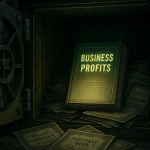Entrepreneurship is a rollercoaster. One moment you’re celebrating a big client win, the next you’re dealing with a product failure, a slow sales month, or unexpected expenses. What separates successful entrepreneurs from those who quit isn’t that they avoid setbacks—it’s how they handle them. Resilience is the muscle that lets you bounce back, recover quickly, and keep moving forward stronger than before.
Why Resilience Is a Core Entrepreneurial Skill
Every entrepreneur faces rejection, uncertainty, and failure. Resilience isn’t about ignoring pain or pretending problems don’t exist. It’s about facing challenges head-on, adapting, and refusing to let them define you.
Strong resilience means you can weather storms without burning out or losing sight of your long-term goals. It’s not just survival—it’s the ability to thrive despite setbacks.
Training Your Mind for Tough Times
Resilience isn’t something you’re born with—it’s something you build. A resilient mindset starts with reframing how you view problems. Instead of seeing failure as the end, see it as feedback. Every setback contains lessons you can use to adjust and improve.
This mindset shift doesn’t erase difficulties, but it changes how you respond to them.
The Role of Routine in Stability
In chaotic times, routines act like anchors. A strong daily rhythm—waking early, exercising, setting priorities—gives you a sense of control when everything else feels uncertain.
Routines also reduce decision fatigue, freeing up mental energy to handle the unexpected. When you have structure in your day, you’re better equipped to absorb shocks without losing momentum.
Emotional Resilience: Managing Stress and Doubt
Resilient entrepreneurs know how to regulate emotions. Stress, doubt, and frustration are normal, but they don’t have to run the show. Techniques like mindfulness, journaling, or even just stepping away from the desk can help keep emotions balanced.
Think of emotional resilience like shock absorbers in a car—it doesn’t remove the bumps, but it smooths the ride so you can keep going.
Physical Resilience: Strengthening the Foundation
Your body fuels your mind. Lack of sleep, poor diet, and no exercise weaken resilience, making it harder to cope with setbacks. Entrepreneurs who treat physical health as part of their business strategy are more capable of bouncing back.
Simple practices—regular exercise, enough rest, balanced meals—go a long way in keeping energy levels steady.
Building a Support System
Resilience doesn’t mean going it alone. Having mentors, peers, or a community to lean on makes it easier to recover from challenges. Talking through problems with people who understand the entrepreneurial journey can shift perspective and spark solutions you may not see on your own.
Isolation magnifies setbacks. Connection makes them manageable.
Real-World Example of Resilience in Action
Consider Serena, who launched an online fashion store. After six months, sales were far below expectations, and she nearly gave up. Instead, she took a step back, analyzed what went wrong, and realized her marketing wasn’t connecting with her audience.
She doubled down on learning about digital ads, joined an entrepreneur community for support, and tested new campaigns. Within a year, her store was not only profitable but expanding. The failure didn’t end her journey—it redirected it.
Practical Resilience Training Exercises
You can actively train resilience just like a muscle. Try these practices:
- Daily reflection: Write down one challenge and what you learned from it.
- Exposure to discomfort: Do something slightly uncomfortable each day (cold shower, tough workout, public speaking). It builds tolerance.
- Gratitude journaling: Reminds you of wins when setbacks feel overwhelming.
- Scenario planning: Imagine worst-case outcomes and how you’d respond. Preparation reduces panic.
Each practice builds small layers of strength that add up over time.
Your Next Step: Create a Resilience Routine
Pick one mental habit, one physical habit, and one support system action to focus on. For example: practice 10 minutes of mindfulness, commit to three workouts per week, and schedule a monthly check-in with a mentor.
Resilience grows from consistent small steps, not giant leaps.
Resilience Is the Entrepreneur’s Superpower
At the end of the day, resilience is what keeps you moving when others stop. It transforms setbacks into stepping stones and failures into feedback. With resilience, challenges don’t just become survivable—they become fuel for growth.
If you’re ready to connect resilience with a structured plan for your entire business journey, explore THE PLAN. It’s built to help entrepreneurs align mindset, systems, and strategies so they can bounce back stronger and scale smarter.



















